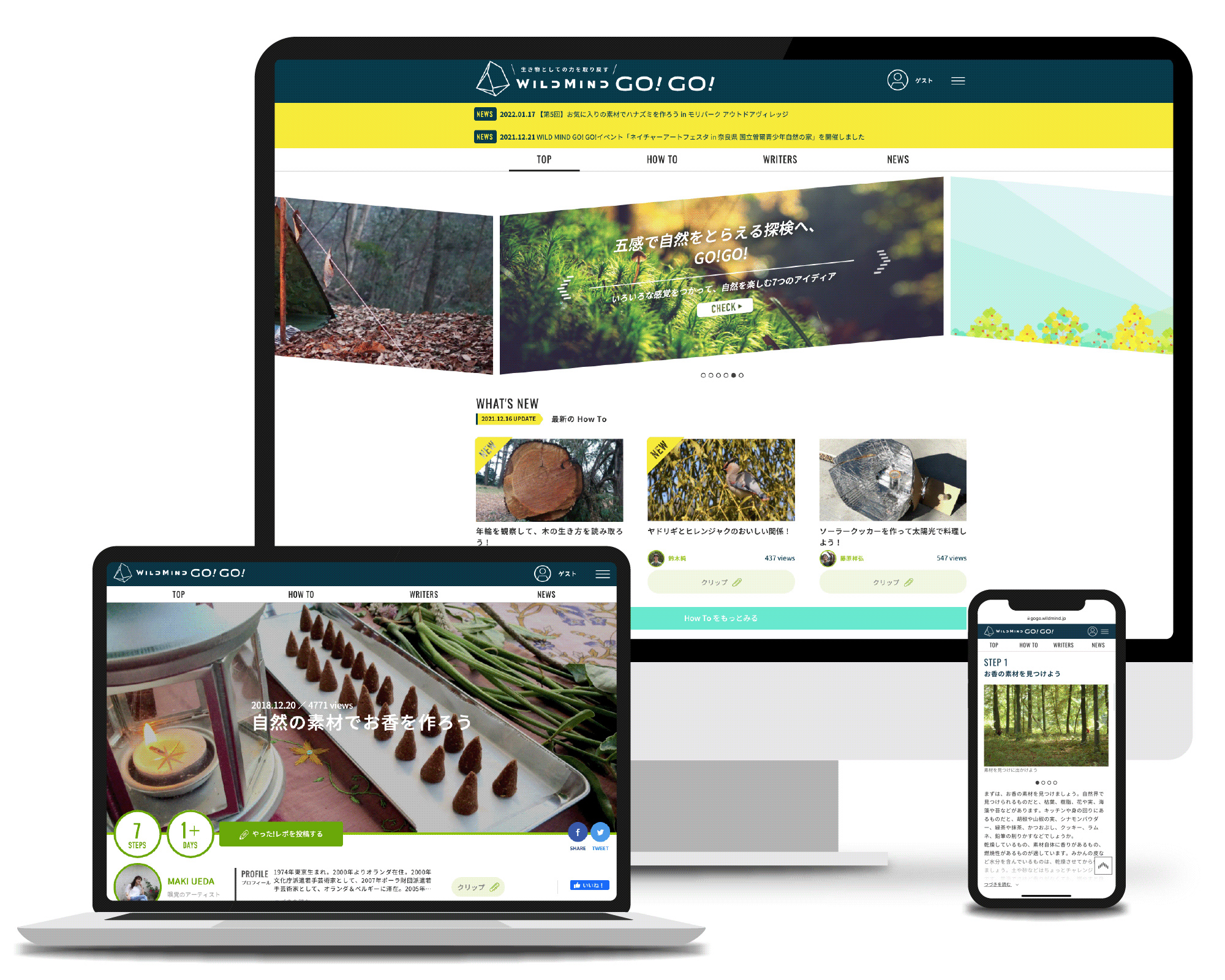Education
Education
“WILD MIND GO! GO!” Website Promotes Nature Experience
The National Biodiversity Strategy and Action Plan 2023 – 2030 formulated by Japan’s Ministry of the Environment points out that the concept of biodiversity is not yet socioeconomically mainstream, and states that this is a fundamental reason for loss of biodiversity. Furthermore, the analysis presented in the national strategy states, “Low awareness of the importance of biodiversity and its relationship to daily life is not conducive to behavior and decision-making that give consideration to living things. To address the insufficient mainstreaming of biodiversity, social values and behavior must be changed and there is a strong requirement to increase interest and understanding by providing education and opportunities to experience nature, first of all.” Casio is in accord with this analysis and is implementing the WILD MIND GO! GO! initiative to provide solutions for the needs of society through its own business activities.
WILD MIND GO! GO! offers people of all ages a creatively curated selection of experiences crafted by over 80 specialists, including outdoor experts, artists, designers, and scientists. Currently, this selection of ideas for over 200 hands-on experiences can be viewed easily by anyone on a computer or smartphone free of charge. People can experience nature in familiar natural terrain, such as parks, woodlands, and dry riverbeds. Participants can also report back on their experiences and share them with others.
People who have participated in these experiences report they have exciting adventures and make a variety of amazing discoveries in a familiar natural environment.
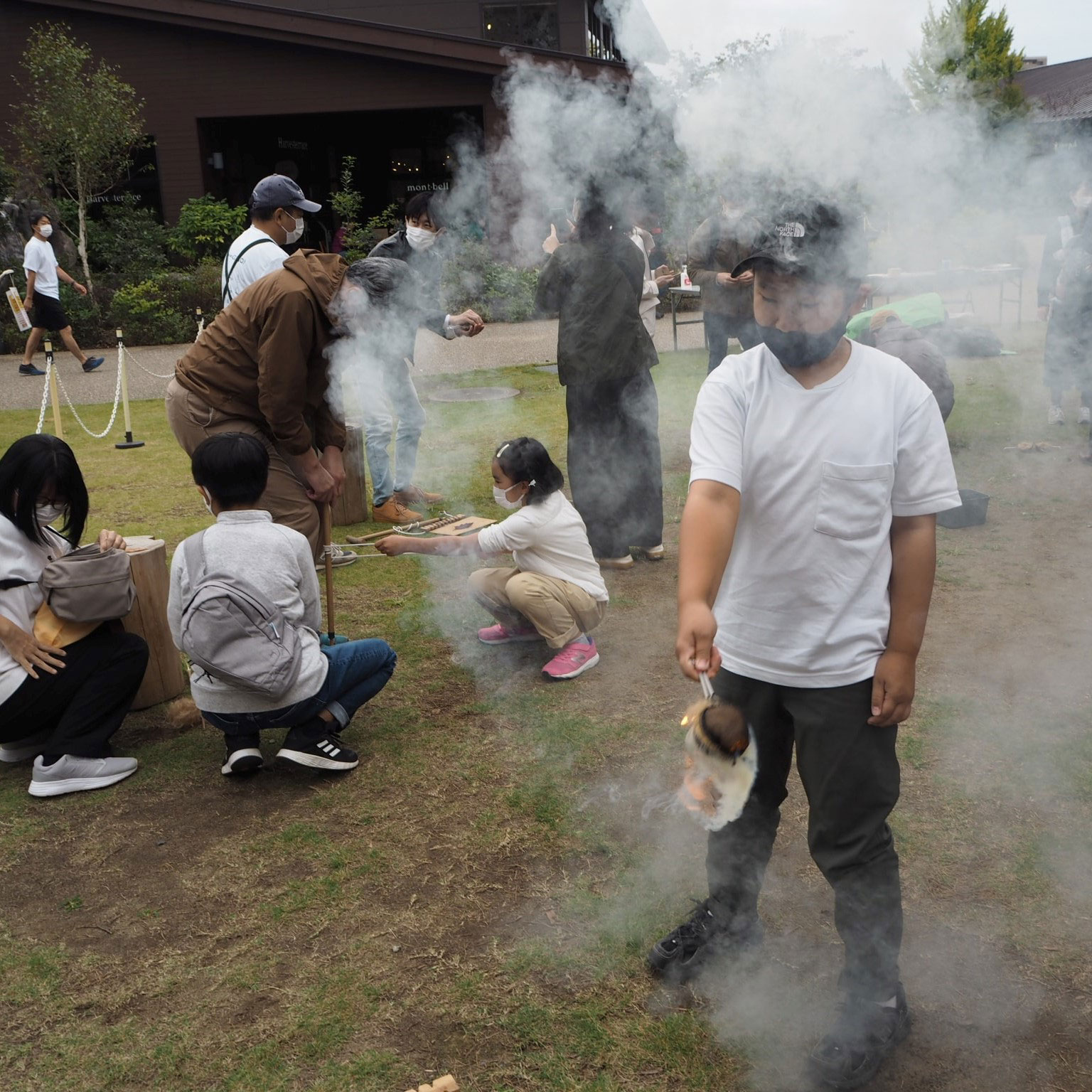
Fire lighting
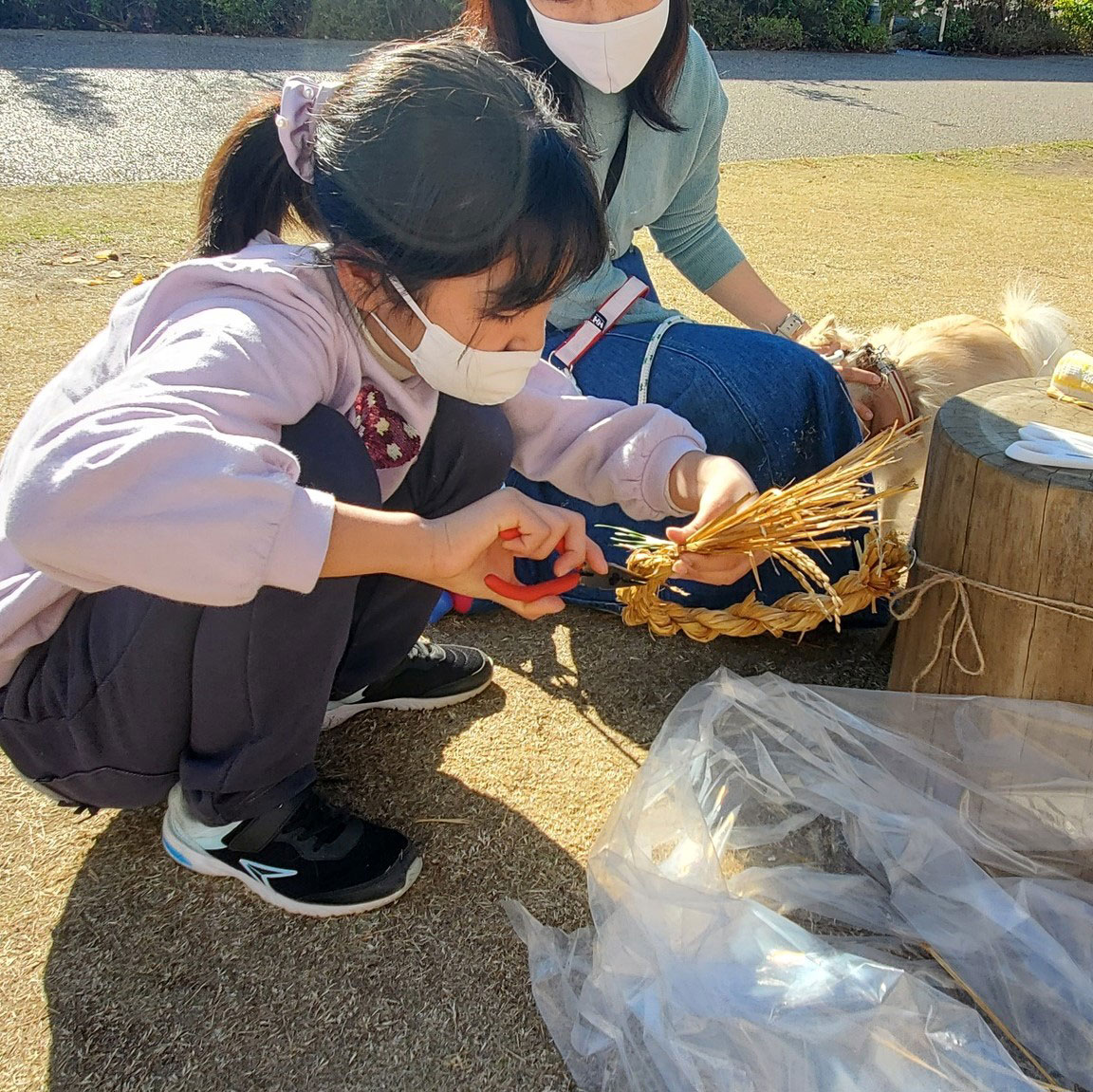
Making "Shimekazari" Japanese traditional decorations of New Year
The ambitious goal of WILD MIND GO! GO! is to offer ideas for hands-on experiences that give people a fresh taste of the allure of nature and connect them to their natural environment. This is designed to restore an awareness of the abundant “power as a living being” that is innate to every person. The foundation for learning is the acquisition of knowledge, but compared to learning from movies or written texts, which offer a limited amount of information, hands-on experiences in natural terrain can be said to have unlimited informational content. In a nutshell, “some things you can’t understand unless you try them yourself.”
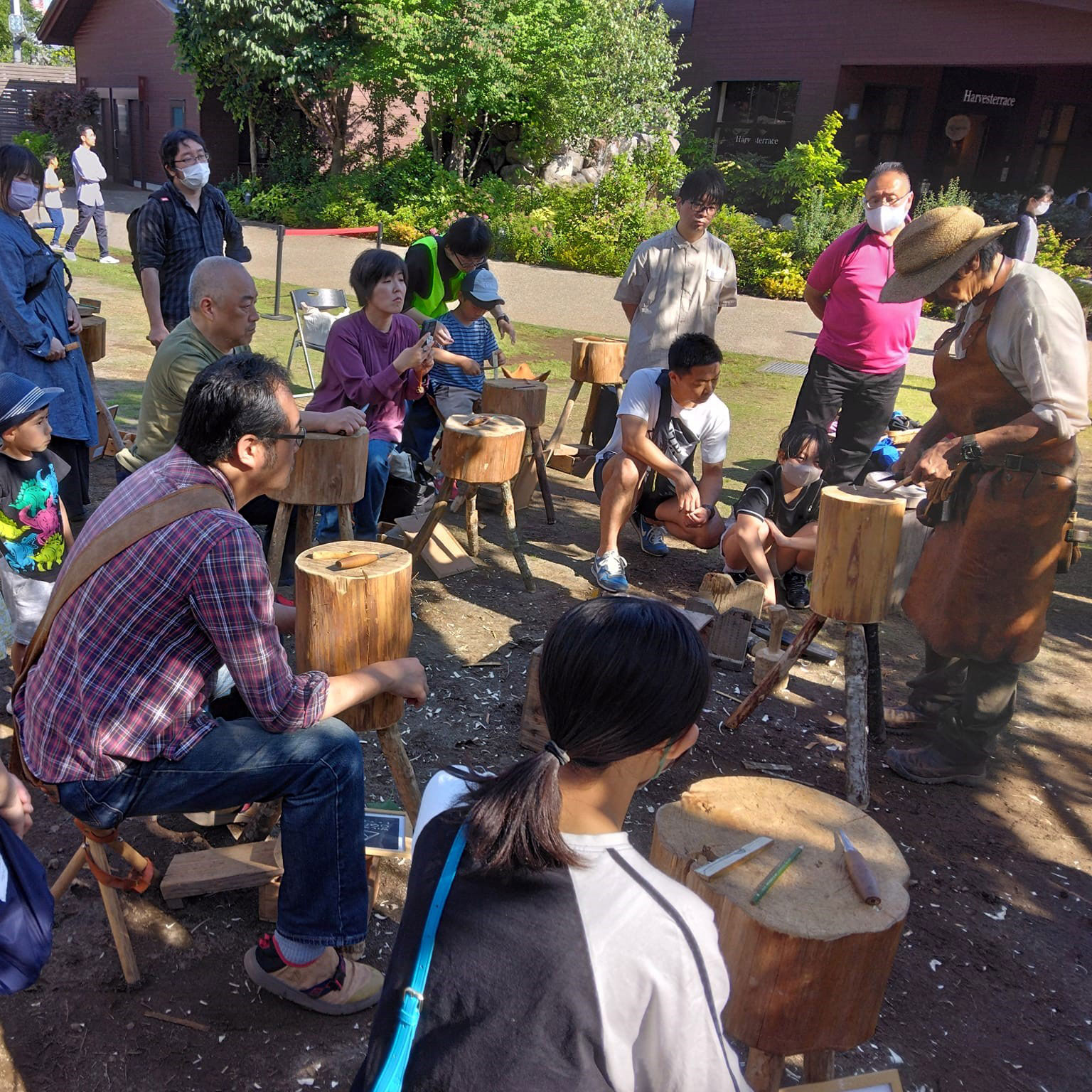
Making a butter knife with greenwood working
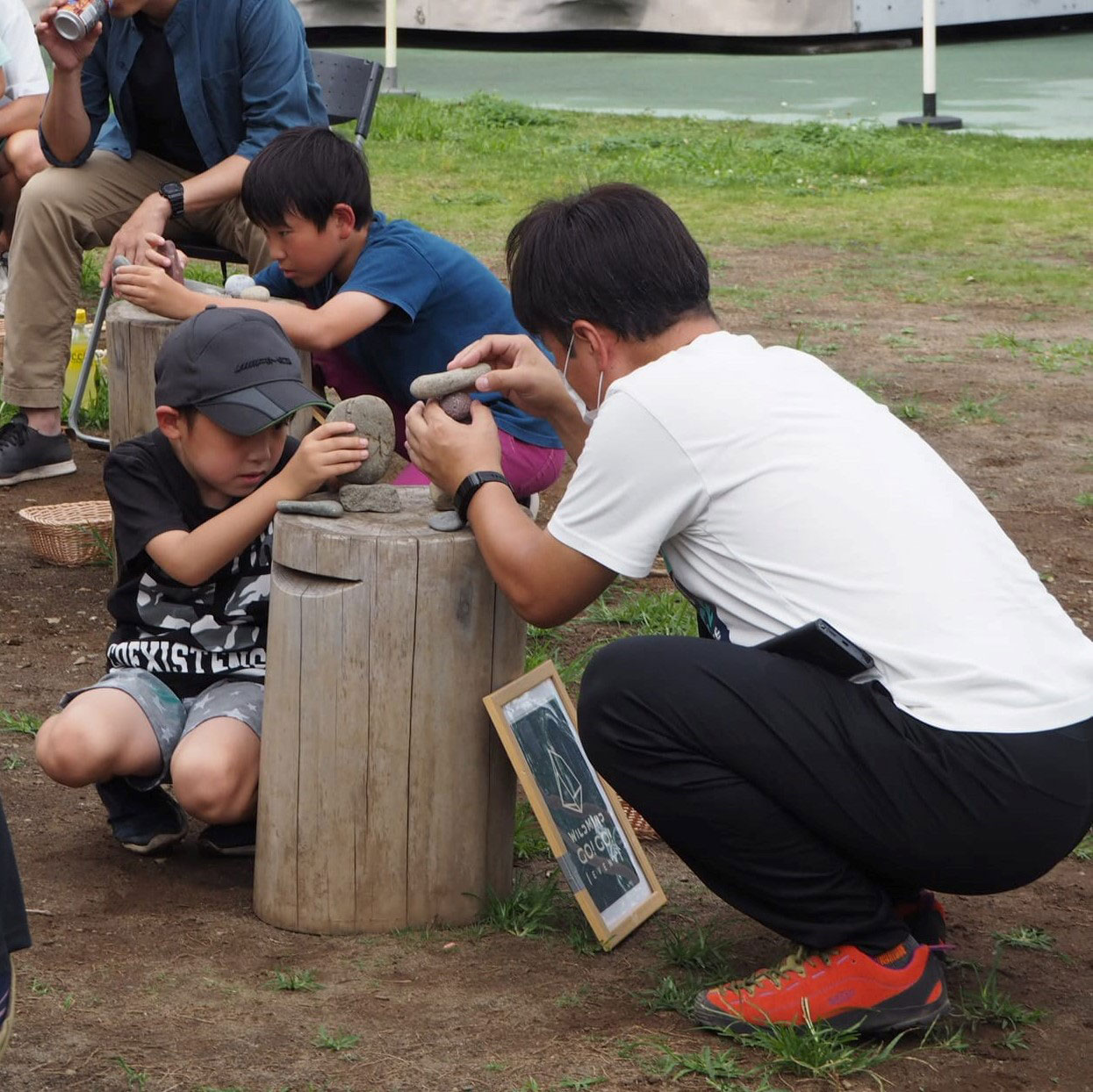
Rock balancing
Hands-on experiences add a dimension that goes beyond intellectual understanding, including an emotional impact and even the opportunity to sometimes make mistakes. It is precisely the understanding gained from experience and learning through repeated doing that leave an indelible impression on the body and soul. One example is a feeling of symbiosis with nature. A meaningful relationship is born with a part of nature, by eating it, using it, etc. The nature you felt detached from before becomes nature that personally concerns you.
Casio continues to promote WILD MIND GO! GO! to encourage more and more people to experience and understand the nature all around them firsthand, to recapture their own “power as a living being.” Some parts of the WILD MIND GO! GO! events are monetized to make this activity more sustainable.
Click here for the latest information of WILD MIND GO! GO! (in Japanese)
CASIO Forest
Casio entered into the “Tokyo Waterworks: Corporate Forest (Naming Rights)” agreement with the Tokyo Metropolitan Government’s Bureau of Waterworks in August 2018 and commenced activities aimed at forest conservation. While this initiative is significant as a form of social contribution activities, the extent of actual contribution is limited. Therefore, Casio focuses on utilization of the forest as a place for educating employees. The activities largely focus on two main aspects. The first is using first-hand experience to deepen the understanding of employees about how the global environment is an important foundation for the sustainability of human society and how forests are a form of natural capital that play a major role in this. The second involves employees taking ownership of unresolved challenges (needs that require solutions) based on these on-site experiences, considering what kind of contributions can be made through the business fields Casio specializes in and translating them into contributions through their main job in the future.
Signed the Tokyo Waterworks: Corporate Forest (Naming Rights) agreement (in Japanese)
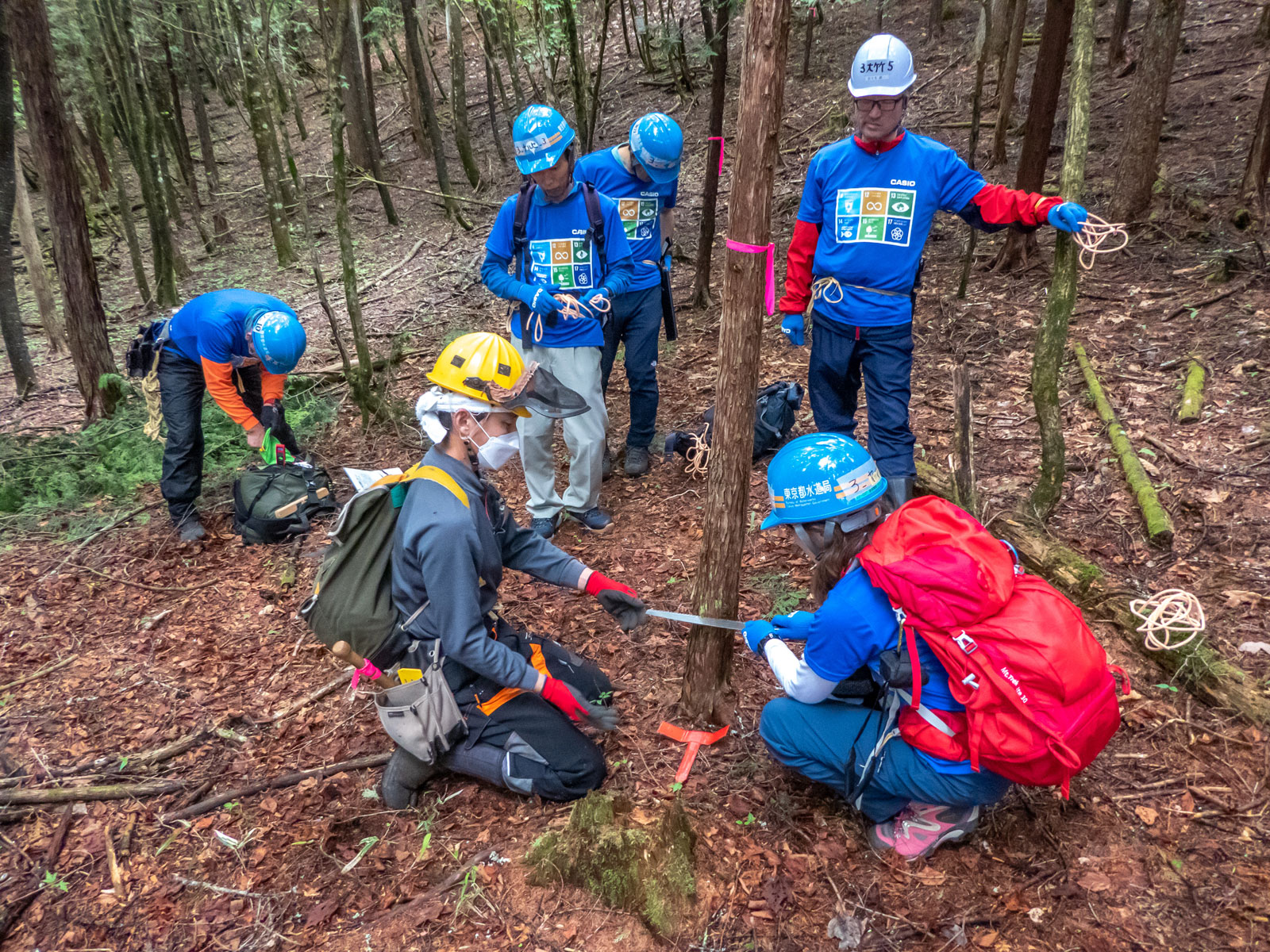
Thinning
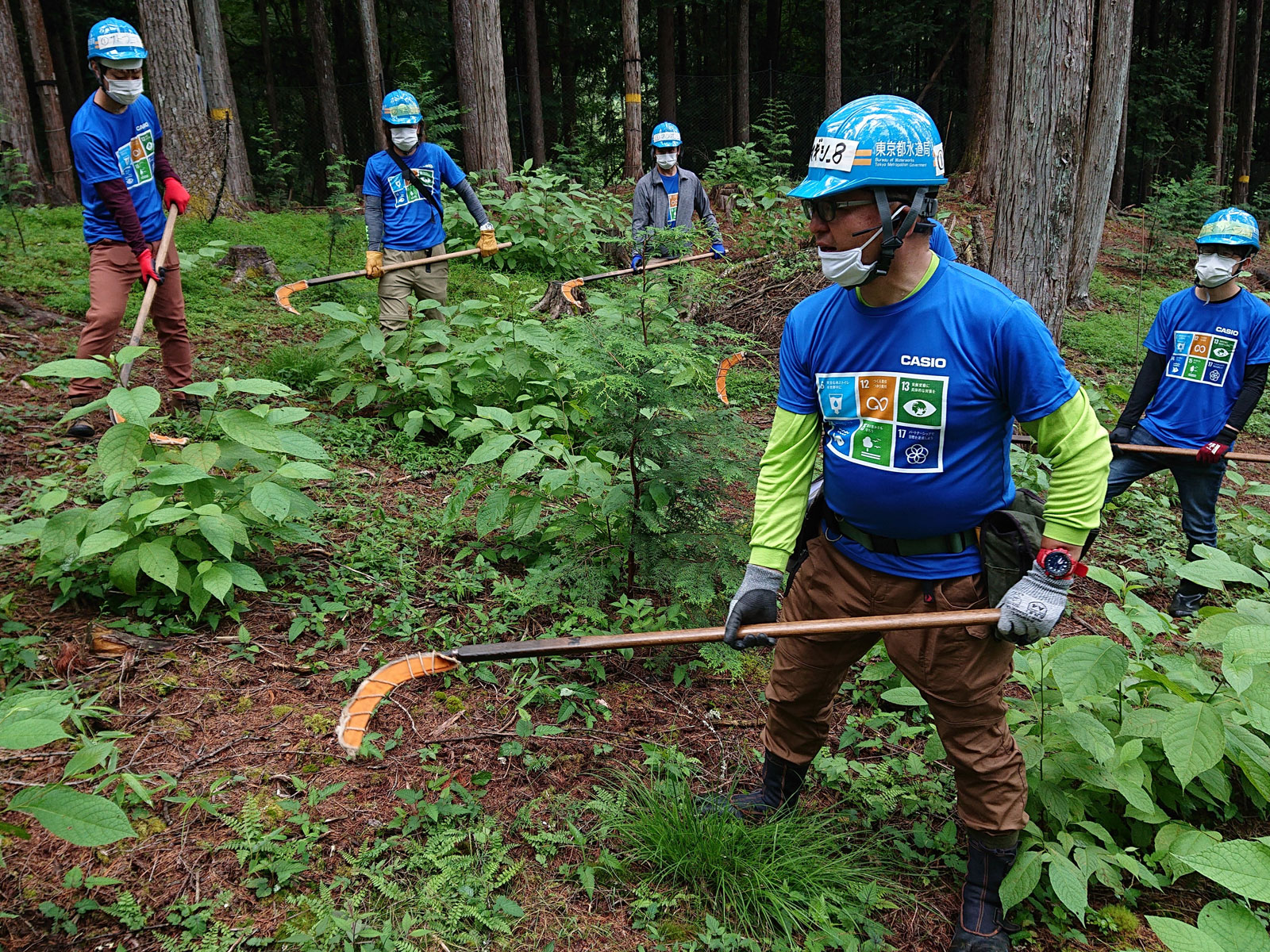
Weeding
The Tokyo Metropolitan Government has been managing approximately 25,000 hectares of water source forest in the area straddling the border with Yamanashi Prefecture since the Meiji Era. The Casio Forest comprises 2.46 hectares of the area and our voluntary staff can contribute to the management through on-site work three times a year, but their involvement is confined to a small portion. Nevertheless, the area is expansive enough to allow for various work experiences and provides an effective scope for understanding the challenges surrounding forest conservation.
Activities in Casio Forest are organized by voluntary employees. We aim to attract employees with a slight interest in global environmental issues. While recruiting participants is challenging due to the lack of mandatory participation as part of their job, there is merit in getting employees with certain interests together to experience and learn something using their day off. In addition, our goal is to maximize the impact of education and enlightenment by having employees use their own creativity and ingenuity to propose and carry out the content of activities and gradually expand the initiative throughout the company.
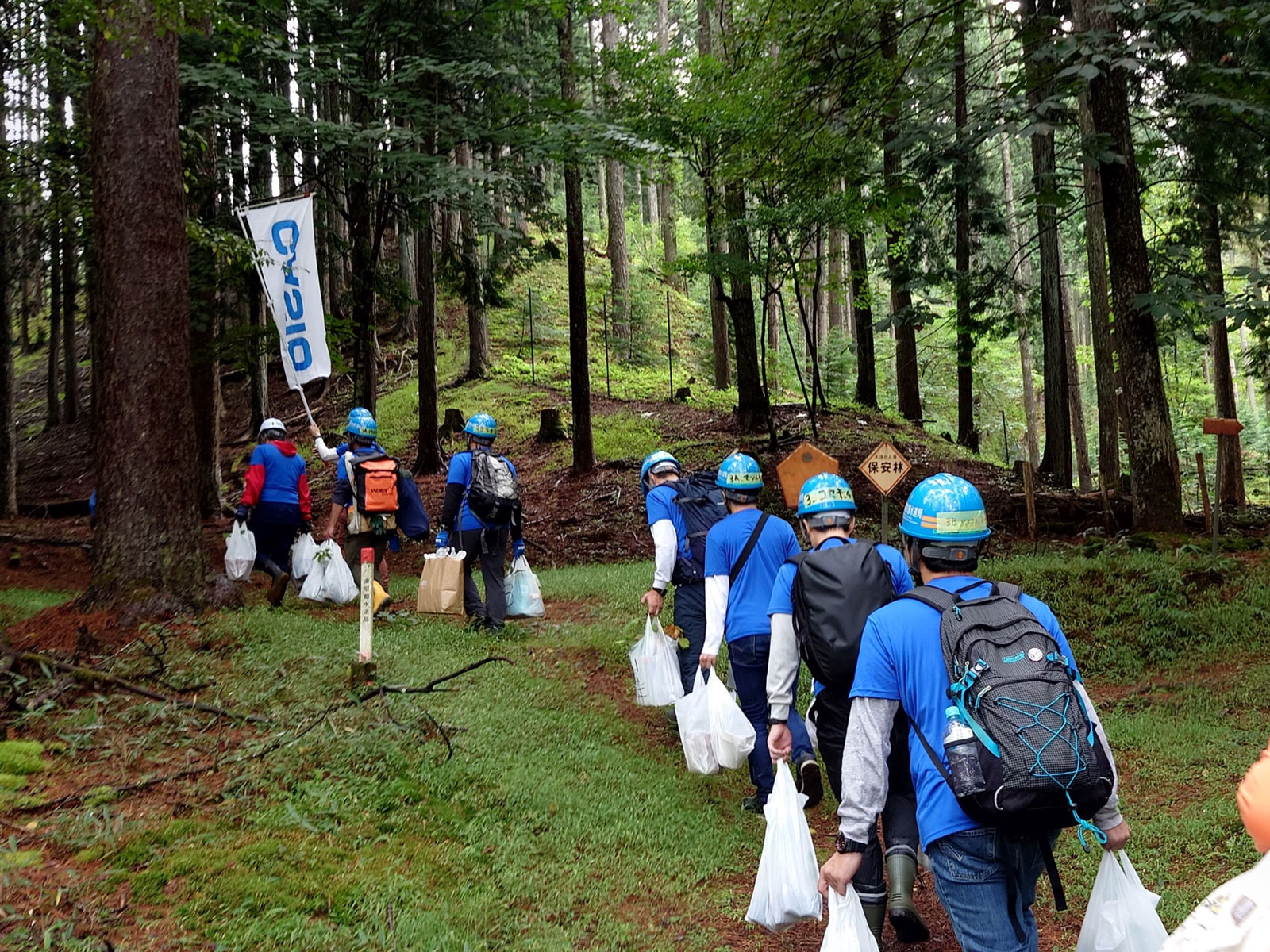
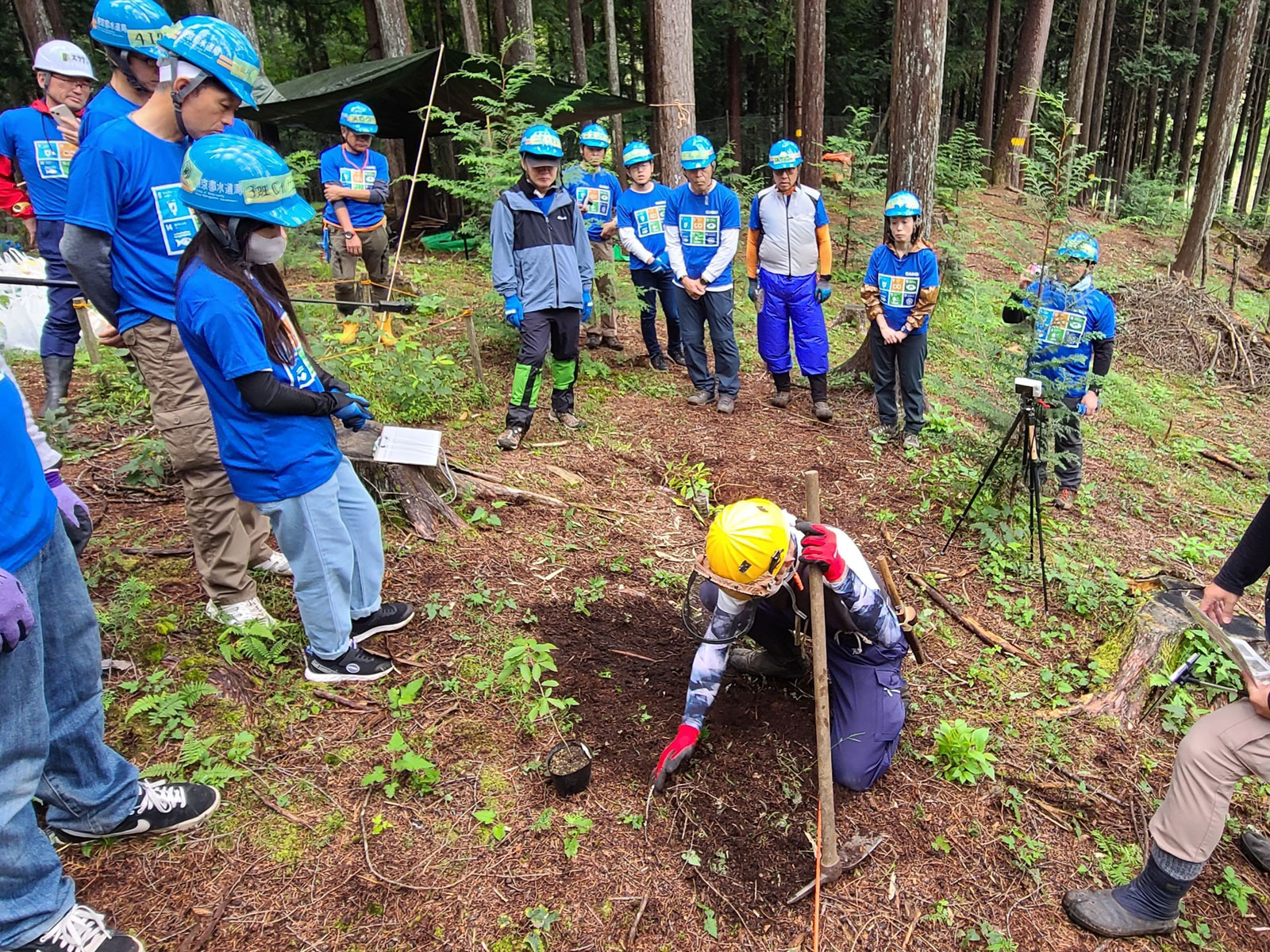
Supplementary planting in September 2023:
Carrying Mongolian oak seedlings raised by employee volunteer “acorn foster parents” to the site for supplementary planting with guidance from experts
Located at an altitude of approximately 1,200 meters, the weather in Casio Forest is subject to change. For each activity, preparations are made for both fair and rainy weather. In the event of rain, there are indoor programs including making birdhouses for wild birds using forest-certified materials, green woodworking which is closely connected with forest conservation work, and ropework which is useful in forestry.
Tokyo has been installing birdhouses in water source forests since 1962 to encourage breeding of wild birds that prevent damage caused by disease and pests in forests and could be described as a pioneer of nature-based solutions (NBS). Installation of the birdhouses started in Casio Forest in 2019. However, during the cleaning of the insides of the birdhouses in fall each year, there was evidence that creatures other than small wild birds were using them. Therefore, installation of additional birdhouses in different sizes and shapes began on a trial basis in 2022.
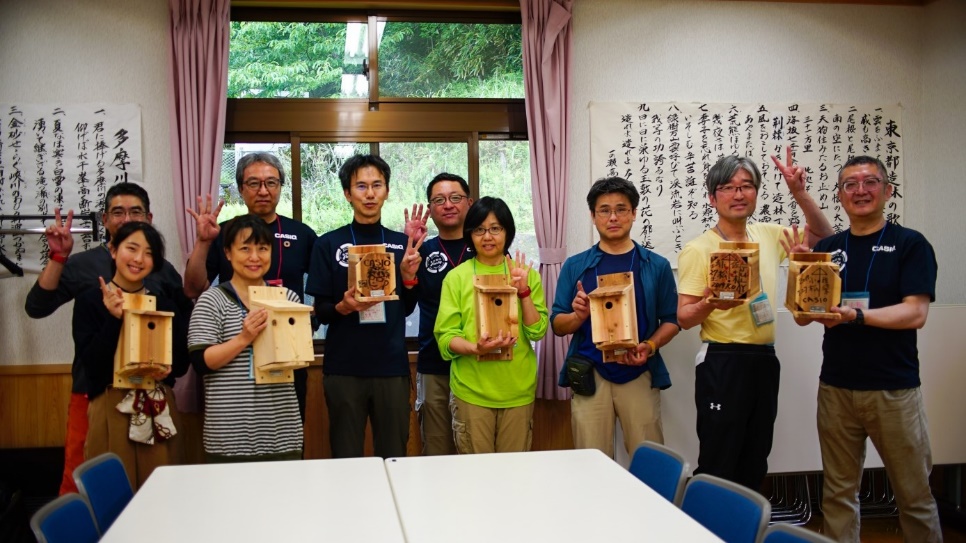
Making Birdhouses in July 2019: Birdhouse-making as a rainy-day program
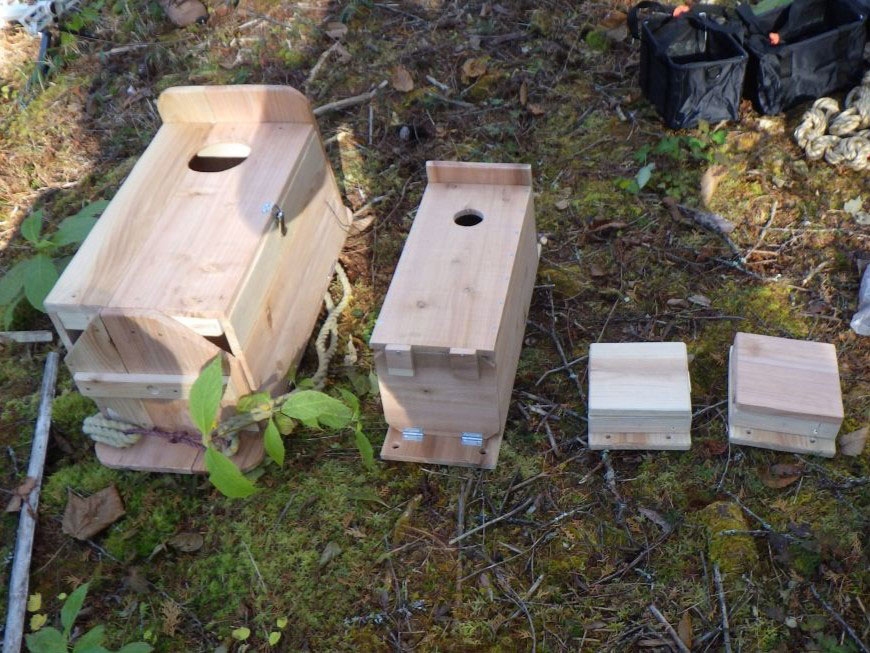
Cleaning and reinstalling birdhouses in November 2022: A variety of additional birdhouses installed
Casio Forest activities had to be scaled down in 2020 and 2021 during the COVID-19 pandemic. However, in 2022, the Tokyo Metropolitan Government’s Bureau of Waterworks held an online lecture called “Business Trip! Corporate Forest” at Casio’s environmental conference, looking to resume full-scale, post-pandemic activities. Also in 2022, the “acorn foster parent initiative” was launched so that employees who cannot take part in work onsite can contribute. An additional 126 Mongolian oaks raised from acorns collected at the site were planted in September 2023. Furthermore, starting in fiscal 2024, significance as a health and productivity management measure was added to the activities, and pre-work exercises guided by the HR Department were offered for the purposes of health tourism and supporting the acquisition of exercise habits. As a result, a total of 367 employees had participated in activities, including the Tokyo Metropolitan Government’s online lecture, as of the end of July 2025.
Reference: Tokyo Metropolitan Government’s Bureau of Waterworks’ website
“Tokyo Waterworks: Corporate Forest (Naming Rights)” (in Japanese)
2018
FY2019 Activities in the Casio Forest (in Japanese)
2019
May: Tree planting of 50 Mizunara(Quercus crispula) and 50 Japanese maples (in Japanese)
July: Birdhouse making and weeding (in Japanese)
November: Birdhouse cleaning and newly installation (in Japanese)
2022
August: Weeding and temporary planting of Mizunara(Quercus crispula) (in Japanese)
October: Tokyo Metropolitan Government’s Bureau of Waterworks online lecture “Business Trip! Corporate Forest”
November: Birdhouse cleaning and reinstallation / Commencement of Mizunara(Quercus crispula) acorn seeding ‒ foster parent activities (in Japanese)
2023
May: Birdhouse nest confirmation / Thinning (in Japanese)
September: Supplementary planting of 125 Mizunara(Quercus crispula) (in Japanese)
November: Walk in a 100-year-old forest / Birdhouse cleaning and reinstallation (in Japanese)
2024
May: Survey of Mizunara(Quercus crispula) growth / Thinning work (in Japanese)
July: Weeding / Supplementary planting of Mizunara(Quercus crispula), woodwork craft experience (making butter knives)
November: Birdhouse making (in Japanese)
2025
May: Survey of Mizunara (Quercus crispula) growth / thinning work (in Japanese)
July: Weeding (in Japanese)
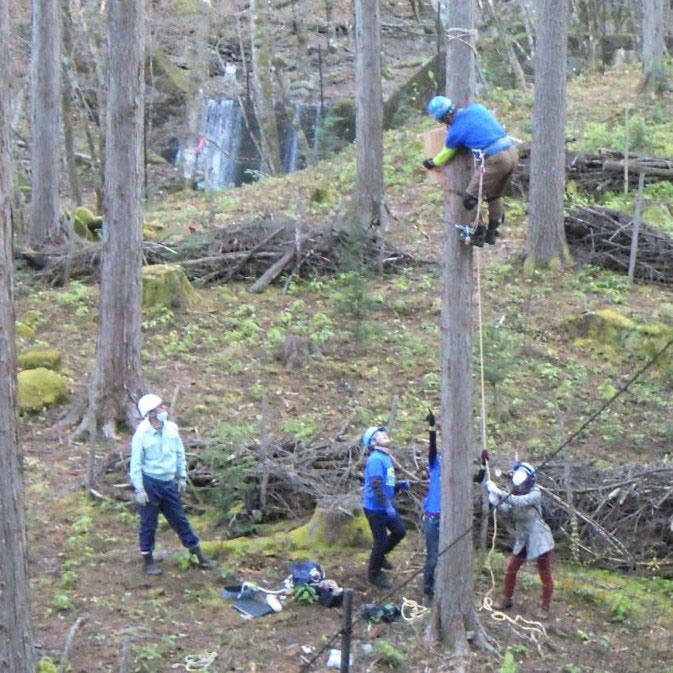
Installing a birdhouse up high using climbing equipment
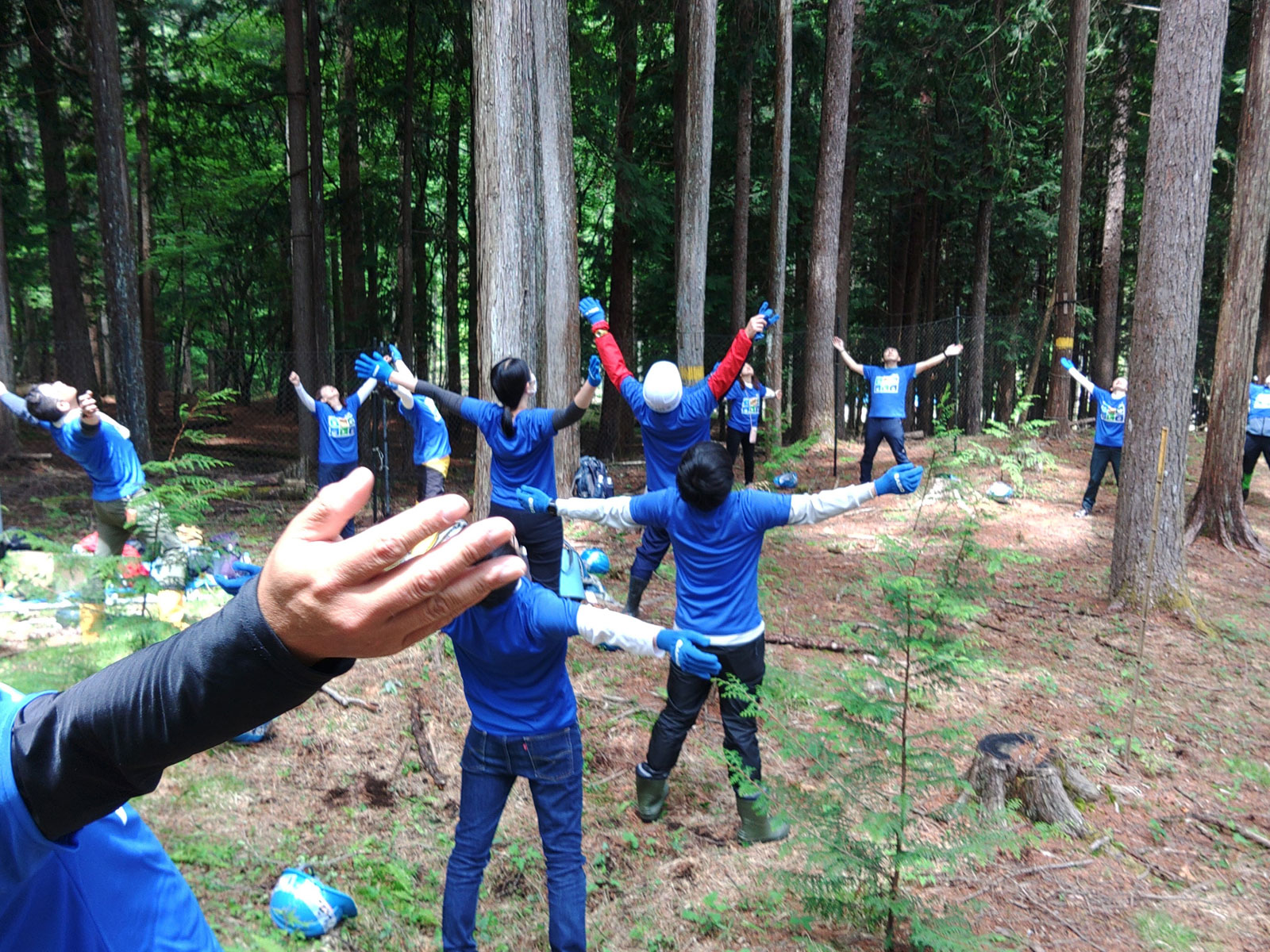
Exercises as a health and productivity management measure
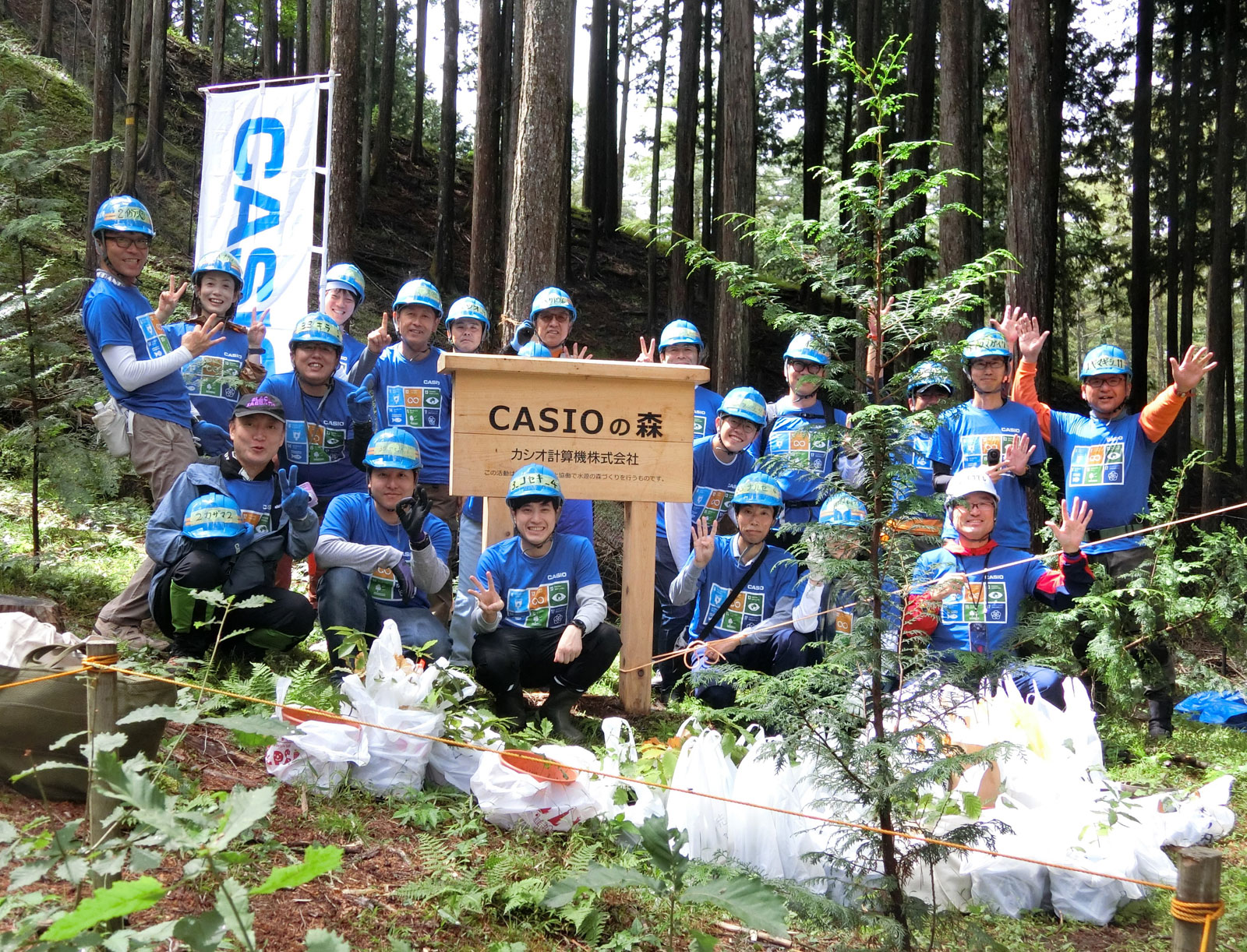
Supplementary planting in September,2023
The second season of the three-year agreement related to Casio Forest ended in August 2024, and we entered the third season, having renewed the agreement for the next three years. Each time we hold the program, we have created learning opportunities with new tasks. However, although there are various ideas and plans, learning about climate change countermeasures to help achieve carbon-neutrality remains a challenge to implement. For example, there is a need to find ways to promote visceral understanding of CO2 emissions from energy used in daily life and CO2 fixation through absorption by forests and the use of wood. The ultimate goal we should aim for in accumulating such learning is to contribute to solving yet-to-be solved social issues by making the most of Casio’s areas of expertise based on our Purpose, which states, “Through the power to put wonder at hand, bring new levels of joy to lives one by one.” We have a strong awareness of this goal, and we will continue to pursue it with originality and ingenuity.
See here for the latest information on Casio Forest(in Japanese)
*Updated on January 7, 2026
